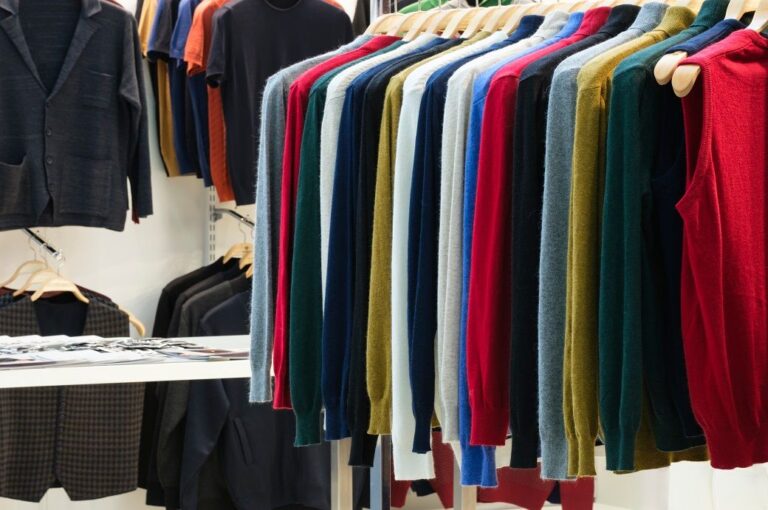
[ad_1]
The event, which brought together brands, suppliers, non-governmental organisations (NGOs), civil society organisations (CSOs), international bodies, and government representatives from around the globe, was the first event since the COVID-19 pandemic to be held in-person, and an opportunity to reconnect with existing colleagues after several years, and force new connections and alliances. At the event, IAF represented mostly the interests of garment manufacturers and small and medium sized brands, the federation said in a press release.
The International Apparel Federation (IAF) had participated extensively in the Organisation for Economic Co-operation and Development’s (OECD) Forum on Due Diligence in the Garment and Footwear Sector in Paris, France in February 2023. Over there the federation expressed its support for European corporate sustainability due diligence legislation.
IAF and several of its partners in the global Sustainable Terms of Trade Initiative (STTI) emphasised that purchasing practices are fundamental to effective due diligence. STTI, a coalition of 13 associations from 10 garment manufacturing countries supported by the IAF, GIZ Fabric, and the Better Buying Institute (BBI) was represented by Dr. Liang Xiaohui of CNTAC from China; Cem Altan, president of IAF and member of the board of TCMA from Turkey; Faruque Hassan, president of the Bangladesh Garment Manufacturers and Exporters Association (BGMEA) and IAF board member from Turkey; Matthijs Crietee, secretary general of IAF; Lisa Ramershoven and Marc Beckman of GIZ Fabric; Marsha Dickson, president and co-founder, and Lindsay Wright, senior manager of communications at BBI.
“Ironically, the way due diligence is implemented in a supply chain can lead to bad purchasing practices in itself. Corporate sustainability due diligence is inherently a risk sharing exercise and not a risk transfer exercise,” said Matthijs Crietee, secretary general of IAF.
Crietee also participated in a panel hosted simultaneously by The Industry We Want (TIWW) and by another STTI participant, the Vietnam Textile and Apparel Association (VITAS), who participated remotely, from Hanoi, Vietnam. It was moderated by Alexander Kohnstamm, the executive director of the Fair Wear Foundation. Other participants in the Paris panel were Anosha Wahidi, head of division of the German Federal Ministry for Economic Cooperation and Development and Joy Roeterdink, head of corporate sustainability of Suit Supply.
The panel agreed that although due diligence legislation potentially holds advantages for manufacturers, including better enforcement of improved purchasing practices, the road leading there is full of pitfalls.
“Ironically, the way due diligence is implemented in a supply chain can lead to bad purchasing practices in itself. Corporate Sustainability Due Diligence is inherently a risk sharing exercise and not a risk transfer exercise,” added Crietee.
Dr. Liang Xiaohui participated in a panel on looking at how brands and suppliers could best collaborate on sharing the costs and responsibilities of due diligence more fairly, which also included Michael Bride of PVH, Anant Ahuja of Shahi Exports, and Sarah Dadush of the Responsible Contracting Project at Rutgers Law School.
Dr. Liang talked about STTI’s origins within the Star Network, IAF, and the COVID pandemic, and the coming together of manufacturer associations from different sourcing countries to create a collaborative solution. Dadush highlighted contracts that acknowledge the impact of purchasing practices on human rights outcomes, and commit buyers to supporting their suppliers’ own HRDD performance. Bride called on brands to accept that the days when they could point to and blame a supplier whenever something goes wrong were coming to an end, and for the whole industry to adjust its mindset to the increasing regulation heading its way.
Several senior sustainability executives from a small number of forward-thinking brands were there, but their colleagues from other departments, or from C-suite and senior leadership, were not present at the event. Given the importance of the topic for them, more manufacturers should have been present. Improving purchasing practices requires work that stretches across companies and across supply chains and it is a challenge for all ‘Paris regulars’ to see this reflected in the 2024 Forum’s attendance, added the release.
Fibre2Fashion News Desk (NB)
[ad_2]
Source link